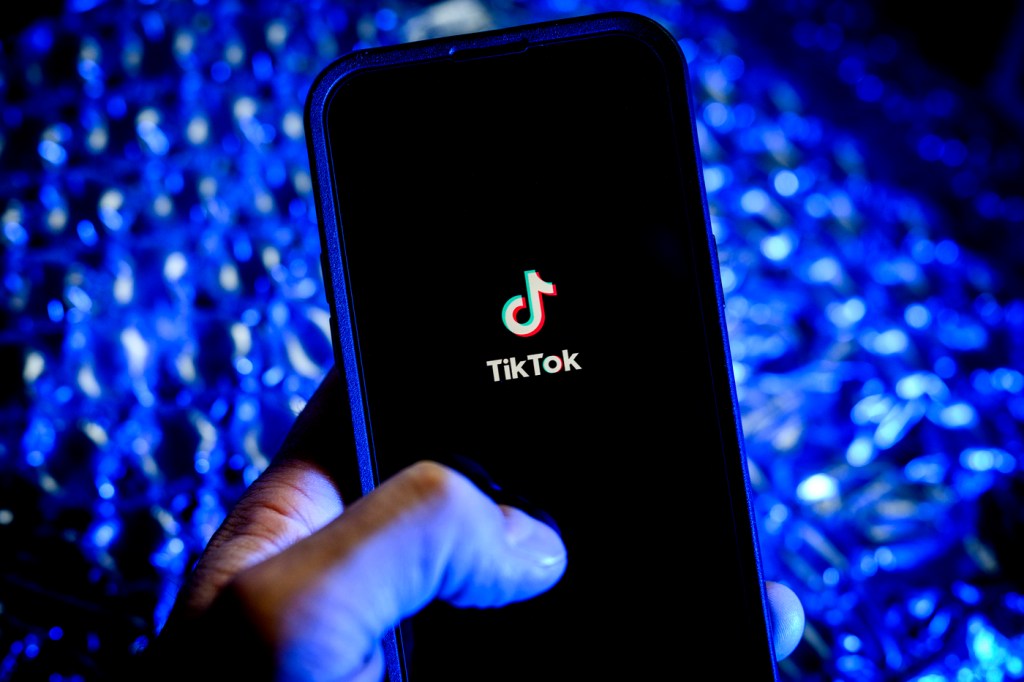Will another social media platform be able to replicate TikTok’s ‘special sauce’?
TikTok’s dominance lies in its groundbreaking algorithm, which will be hard to match or maintain, if its U.S. operations get sold, Northeastern experts say.

Where will TikTok refugees go if the social media platform is eventually banned?
Can a new platform replace the app if it isn’t sold?
Northeastern University experts say the answers lie in one thing — who has the best algorithm.
TikTok’s unparalleled success lies in its unique recommendation system, says John Wihbey, professor of media innovation and technology at Northeastern.
“The secret sauce with TikTok is the algorithm,” he says. “The algorithm just seems to be able to hack into our brains in a way that is super effective.”
Platforms like YouTube Shorts, Instagram Reels and Snapchat offer similar short video formats, but they lack the defining feature that makes TikTok so effective, Wihbey says.
TikTok’s algorithm distinguishes itself by focusing on a content graph rather than a social graph, he says.
Traditionally, social media platforms prioritized connections between users to deliver content, but TikTok revolutionized this approach by exclusively analyzing user interests and behavior — what people watch, like and share, as well as how much time they spend on each video.
This enabled TikTok to deliver a highly personalized feed, seamlessly blending predictability with novelty.
According to Wihbey’s data, half of American adults under the age of 50 self-report using TikTok. Pew Research Center studies reveal that a third of all U.S. adults and 59% of adults under the age of 30 use the app, while 57% of those ages 13 to 17 use it daily.
Editor’s Picks
“It’s a remarkable degree of usage,” Wihbey says. “It’s just clearly ‘sticky.’ You might also say it’s addictive.”
Before TikTok, no platform had fully tapped into the idiosyncrasies of human interests, Wihbey says.
“We all have a crazy jumble of things that we are interested in,” he says. “They sort of figured out that human psychology has these idiosyncratic but in some ways predictable patterns and how to surface content that nobody has ever heard of, but you think is awesome.”
The algorithm’s ability to uncover these patterns has made TikTok more than just a social media app — it’s an engine capable of delivering obscure content that feels deeply relevant.
As the U.S. considers banning TikTok, questions arise about the future of its algorithm. If TikTok is sold to a new owner, its algorithm may lose its effectiveness, says David Choffnes, executive director of Northeastern’s Cybersecurity and Privacy Institute.
The algorithm’s complexity, driven by advanced AI, functions as a kind of black box — its inner workings are not easily understood, even by those who maintain it.
Choffnes cautions that any buyer inheriting TikTok may face challenges in keeping the algorithm running at its current level of sophistication.
“I can imagine a sort of slow rot of the algorithm,” he says, “maybe [it] not working as well over time, if it’s not maintained.”
Even if TikTok were to be banned, Wihbey believes its algorithm sets a high bar for any new or existing platform attempting to fill the void.
“They’ll become the primary focus for influencers and advertisers and everybody trying to do [short video] content,” Wihbey says of rivals like Meta and Google. However, without TikTok’s “secret sauce” these platforms remain a step behind.
Choffnes adds that the intricacy of recommendation systems means they are not simple formulas for success.
“Essentially whoever buys that gets the whole package, but is it a list of instructions for how to succeed at any social media app? The answer is no,” he says.











